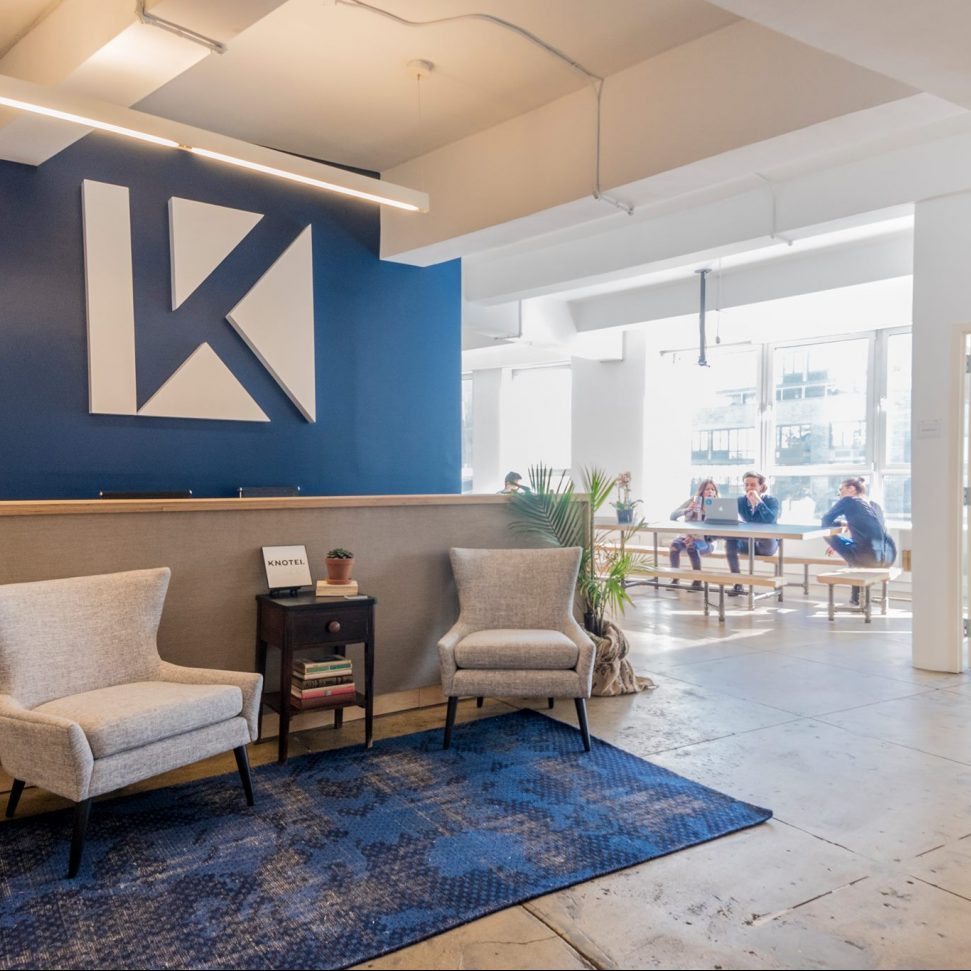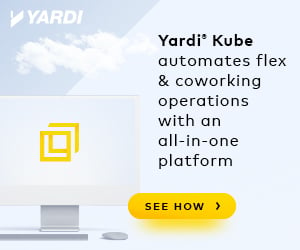“There are only so many freelancers with headphones on that need a desk in a coworking space” – Amol Sarva, Knotel
An increase in number or volume is one way to measure a growing market; evidence of diversity is another. Indeed, the flexible workspace industry isn’t just growing in size — it’s also branching out into new avenues and giving way to new business models.
One brand that’s identified a fresh opportunity within the market is Knotel.
Recognizing the steady increase in demand for flexible workspace, the company is carving out its very own niche in New York City and recently proved its worth by raising $25 million in Series A funding.
But Knotel distances itself from that of a coworking operator.
“There are only so many freelancers with headphones on that need a desk in a coworking space,” says Amol Sarva, co-founder of Knotel. “For us, the challenge is to crack the real market, the leases-for-real-companies market.”
Knotel operates by partnering with building landlords under profit-sharing deals to create custom headquarters for midsize companies and established CEOs. Under the tagline “Tailored headquarters on demand”, they work closely with growth-oriented organizations to create bespoke, flexible office environments that align with their clients’ brands.
“A 100 person company can click on Knotel.com and move into a beautiful space the next day,” Amol explained. After that, the space can be culture-coded and branded within a few weeks of moving in.
It sounds like a tall order. Yet the Knotel team has hit upon a concept that’s in-demand, and they’re rising to it.
Amol, a veteran startup founder who co-founded Virgin Mobile USA along with a number of other organizations, created Knotel alongside Edward Shenderovich, himself a serial entrepreneur. Currently, Knotel has 15 locations throughout New York City with plans to expand into more cities across the US.
“In 2015, Edward and I founded Knotel after running our own office — and realizing that companies are agile but their headquarters are not.
“We saw the time and money poured into leases at the CEO level, and noticed an opportunity to help these founders grow their enterprises without the headaches of traditional real estate. So we set out to do something about it.”
As Amol candidly puts it, their angle aims to “protect staff from wading into real estate BS”.
“We facilitate the really technical and specific things at-cost. Broadcast studio? Taken care of. Backup power? Commercial kitchen? Epic events space? Regulatory-compliance on data security? We can handle it all.”
Most of their demand comes from organizations with 20+ employees, yet these bespoke, fast-action results don’t come with hefty commitments. Their appeal lies in providing short-term solutions for clients without the rigidity of traditional leases.
Of course, that’s nothing new. This approach has been the cornerstone of the flexible workspace industry for the past few decades.
So what is new?
Unlike many workspace operators, Knotel steers clear of signing building leases. Rather than extracting revenue from membership or license fees, Knotel partners with landlords under profit-sharing arrangements, similar to that of hotels, which allows Knotel to side-step long-term lease commitments and maintain a more favorable position in the event of a downturn.
Asked about the level of current demand they are currently receiving, Amol replied: “Tons. We’re now in 15 locations and constantly adding new residents. We’re growing faster every month; inbound demand is 25x higher than it was last January.”
Locally, Amol says that the “market is tight” with little in the way of new office construction projects in New York.
“But the bigger trends are around New York as a super city where high-value staff want to live,” he added. “These workers expect better environments with creative freedom and open spaces; and their companies are competing with the Googles of the world.”
As such, he has big plans for the company’s newly acquired funding, including “dozens” more locations around New York City (“New York City can be 100x bigger here just for us”) and plenty more across the US. “We do have plans to grow into London, Boston, San Francisco, Chicago, Tokyo and Shanghai over the next few years.”
And while Knotel’s founders themselves are relatively new to the flexible workspace industry, their faith in the market — from the perspective of experienced and successful entrepreneurs — offers another dose of positivity for the industry.
Further afield, Amol sees a conveyor belt of opportunities.
“Globally, the workplace is changing. The pace of company change is accelerating, the information technology capacity to coordinate buyers and sellers is finally being accepted by real estate players.
“It’s such a huge category — trillions — that the opportunity is unique in the startup world.”



 Dr. Gleb Tsipursky – The Office Whisperer
Dr. Gleb Tsipursky – The Office Whisperer Nirit Cohen – WorkFutures
Nirit Cohen – WorkFutures Angela Howard – Culture Expert
Angela Howard – Culture Expert Drew Jones – Design & Innovation
Drew Jones – Design & Innovation Jonathan Price – CRE & Flex Expert
Jonathan Price – CRE & Flex Expert













